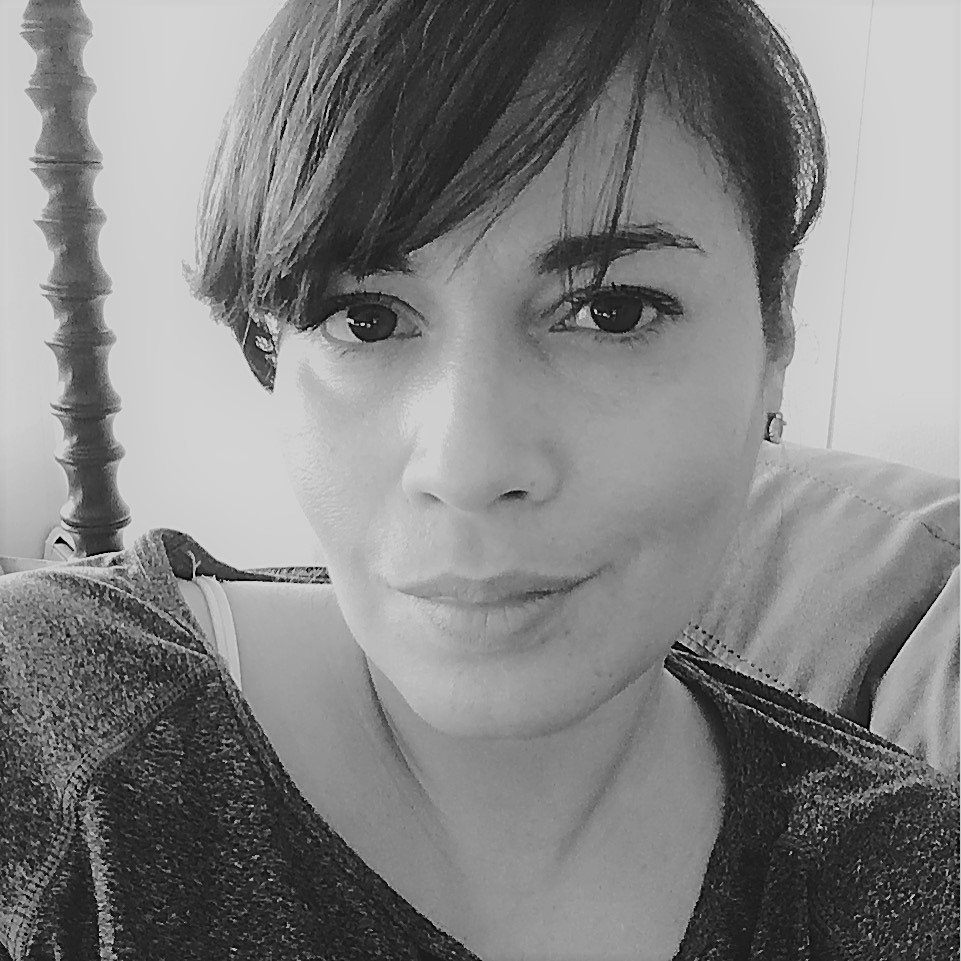Risking everything to go gene hunting
A mature student switches careers to discover cures for birth defects
43-year-old Tamara Areizaga from Co-Op City is sure her 20-year insurance career is finally behind her.
“9 to 5 was detrimental to who I am as a human being. It was time to take a risk, make a drastic change, and do what I wanted to do!” exclaimed the second year Queensborough student and undergraduate researcher, focused on the genetic causes of disabilities in children.
Her ten-year-old niece developed life-threatening health complications at birth.
“Olivia could not eat and breathe at the same time when she was born. At four-months-old, she had a bad seizure, and doctors identified Olivia as having infantile spasms, which should have gone away, but didn’t. Genetic testing has not revealed any mutations, so we don’t know the direct cause of her global developmental or chronic issues. Her medical team is still testing epileptic genes,” Areizaga said.
 On oxygen and using a feeding tube, Olivia is comforted when her mother or sister is in the room, according to the Bronx resident.
On oxygen and using a feeding tube, Olivia is comforted when her mother or sister is in the room, according to the Bronx resident.
“She smiles at certain things. I know she is aware; I can see it in her eyes. She drives me to learn. My goal is to study genes related to her ailments and those specific to immunity and epilepsy.”
For now, Areizaga is participating in Covid-19 related research during the fall 2020 CUNY Research Scholars Program (CRSP), under the guidance of Dr. Monica Trujillo. The team is looking for traces of the virus in local wastewater, indicators of how widespread and active Covid is in the five boroughs and beyond. As a CRSP Scholar, Areizaga will assist Dr. Trujillo and associates on sequencing the virus.
“I will develop skills this semester that will be very useful for my next steps. I started learning about Covid in my microbiology class and, by reading original papers, I learned how the virus interacts with the host proteins,” the biotechnology major explained.
“An important group of human enzymes, the histone deacetylases (HDACs) regulate the expression of many genes and inhibitors of these enzymes are known as potential anticancer agents. Surprisingly, one protein encoded by SARS-CoV-2 interacts with HDACs. The discovery and understanding of how the virus targets central human enzymes are essential for finding treatment for COVID-19,” Areizaga added.
A single mom to an adult daughter, Areizaga has earned top grades at Queensborough, an academic pattern she established in middle school when she conducted lab work as a visitor to the Bronx High School of Science, one of New York City’s top specialized high schools.
“We used Bunsen burners and learned all about lab techniques. I loved science and discovering, but unfortunately did not have the support network or encouragement to pursue it then,” she recalled.
At Queensborough, Areizaga has struggled with chemistry and other courses.
“I’m not an expert, but I will become one. I’m sure many people like me ask themselves the same question – ‘Can I do this or just give up?’ I need to push through, go forward, and place one foot in front of the other. It takes me longer. I have to work harder.”
By the end of winter 2020/21, Areizaga will have completed her Queensborough degree. In the spring, she plans to transfer to City College’s Bachelor in Biotechnology, where she accepted an invitation to participate in the competitive Maximizing Access to Research Careers (MARC) program, funded by the National Institutes of Health for underrepresented biomedical undergraduate students preparing for studies at the Ph.D. level.
While studying for her family, Areizaga relies on support from her family to get through the rough patches.
“My mom, sisters, and my daughter are pushing me every day. I ask is this what I want to do. My daughter admires what I am doing. She does not think I’m crazy,” she said, adding that remote learning, this semester and last, is particularly challenging – not that she misses 5:00 AM wake-ups or the two-hour Q50 and Q27 daily bus commutes, each way.
Areizaga started running a year ago and signed up for a 100-mile virtual race earlier this year. As of mid-October, she had 90 miles to go.
“I’ll complete it, like my studies, because my ultimate dream is to be at the forefront of science, technology, genetics, and epilepsy, collaborating with other scientists and advocating that everyone has access to quality healthcare.”
Note: Areizaga and other CRSP Scholars will present their findings at the Virtual Undergraduate Research Day, to be held on December 4, 2020.
###
Contact:
Michael Donahue or Alice Doyle



